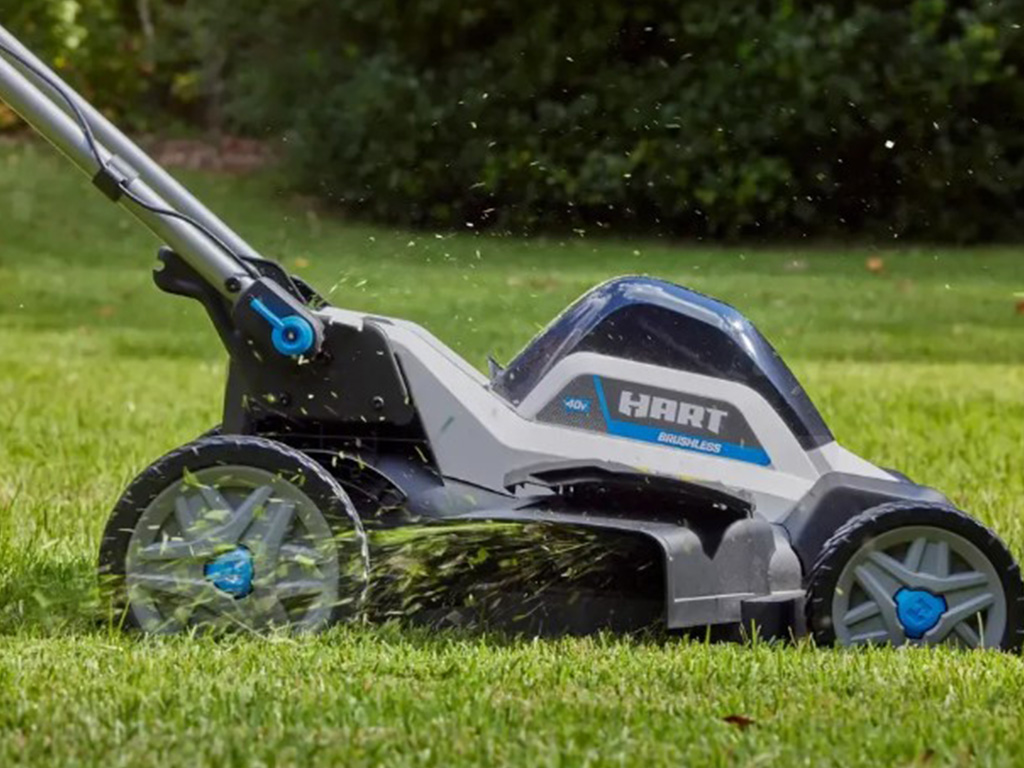Used mowers are pre-owned lawn mowers that are offered for sale by individuals or businesses. These mowers may vary in age, condition, and features, providing buyers with a range of options to suit their needs and budget.
Purchasing a used mower can be a cost-effective alternative to buying a new one. It allows buyers to acquire a reliable and functional lawn mower without making a significant investment. Used mowers can also be a good option for buyers who are looking for specific models or features that may not be available in new mowers.
When considering purchasing a used mower, it is important to inspect the mower thoroughly to assess its condition and functionality. Buyers should also consider factors such as the age of the mower, the number of hours it has been used, and any repairs or maintenance that may have been performed.
Used Mowers for Sale
When purchasing a used mower, there are several key aspects to consider to ensure a satisfactory buying experience. These aspects encompass the condition, age, price, features, and availability of the mower.
- Condition: The overall state of the mower, including its functionality and any visible damage or wear.
- Age: The number of years the mower has been in use, which can impact its performance and durability.
- Price: The cost of the mower, which should be commensurate with its condition, age, and features.
- Features: The specific capabilities and attachments included with the mower, such as mulching or bagging.
- Availability: The accessibility of the mower, including its location and the seller’s willingness to negotiate.
By carefully considering these key aspects, buyers can make informed decisions when purchasing a used mower. For instance, if a buyer prioritizes affordability, they may opt for an older mower with fewer features. Conversely, if a buyer requires a mower for heavy-duty use, they may choose a newer model with advanced capabilities. Ultimately, understanding these aspects empowers buyers to find a used mower that meets their specific needs and budget.
Condition
The condition of a used mower is a crucial factor to consider when making a purchase. It directly impacts the mower’s performance, durability, and overall value. A well-maintained mower with minimal wear and tear is likely to provide reliable service for many years to come. Conversely, a mower that has been neglected or abused may require costly repairs or replacement parts.
When evaluating the condition of a used mower, it is important to inspect it thoroughly. This includes checking for any visible damage to the mower’s deck, frame, and engine. It is also important to test the mower’s functionality, including its starting capabilities, blade engagement, and mowing performance. If possible, it is helpful to ask the seller for a maintenance history of the mower, as this can provide valuable insights into its overall condition.
Understanding the condition of a used mower is essential for making an informed purchase decision. By carefully inspecting the mower and considering its maintenance history, buyers can minimize the risk of purchasing a mower with hidden problems.
Age
The age of a used mower is an important factor to consider when making a purchase. As a general rule, older mowers are more likely to experience performance issues and require repairs compared to newer models. This is because mowers, like all machines, experience wear and tear over time. Regular use and exposure to the elements can take a toll on the mower’s engine, transmission, and other components.
However, it is important to note that the age of a mower is not the only factor that determines its condition. Some mowers may be older but have been well-maintained and serviced regularly, resulting in a longer lifespan and better performance. Conversely, some newer mowers may have been neglected or abused, leading to premature wear and tear.
Therefore, it is essential to carefully evaluate the condition of a used mower before making a purchase. This includes inspecting the mower for any visible signs of damage or wear, as well as testing its functionality to ensure it is operating properly. If possible, it is also helpful to ask the seller for a maintenance history of the mower, as this can provide valuable insights into its overall condition.
Price
Price is a crucial factor to consider when purchasing a used mower. The cost of the mower should be commensurate with its condition, age, and features. A well-maintained mower with minimal wear and tear and newer features will typically command a higher price than an older mower with more wear and fewer features.
It is important to research the market value of used mowers before making a purchase. This can be done by checking online marketplaces, classified ads, and local mower dealerships. By understanding the market value, buyers can ensure that they are paying a fair price for the mower.
In addition to the mower’s condition, age, and features, buyers should also consider the cost of ownership when making a purchase. This includes the cost of fuel, maintenance, and repairs. By considering all of these factors, buyers can make an informed decision about the best used mower for their needs and budget.
Features
Features play a significant role in the selection and purchase of used mowers. Different mowers offer a range of capabilities and attachments, such as mulching, bagging, and side discharge, which can cater to specific lawn care needs and preferences. Understanding the available features and their benefits is essential for buyers to make informed decisions.
Mulching mowers, for instance, are designed to finely cut grass clippings and disperse them back into the lawn, providing nutrients and moisture to the soil. This eliminates the need for bagging or disposal of grass clippings, saving time and effort. Bagging mowers, on the other hand, collect grass clippings in an attached bag, which is convenient for lawns with excessive clippings or for those who prefer a cleaner appearance.
Other features to consider include the mower’s deck size, which determines the width of the mowing path, and the type of engine, which can impact performance and fuel efficiency. By carefully considering the desired features and matching them to their specific lawn care needs, buyers can select a used mower that meets their requirements and enhances their overall mowing experience.
Availability
When searching for used mowers for sale, availability is a key factor to consider. The accessibility of the mower, including its location and the seller’s willingness to negotiate, can significantly impact the purchasing process and overall experience.
The location of the mower is an important aspect of availability. If the mower is located far away, buyers may have to factor in additional costs and arrangements for transportation. This can include renting a trailer or hiring a delivery service, which can add to the overall expense of the purchase. Conversely, if the mower is located nearby, buyers can more easily arrange for pickup or delivery, saving time and money.
The seller’s willingness to negotiate is another important aspect of availability. Some sellers may be more flexible with their pricing and terms, while others may be less willing to negotiate. By understanding the seller’s willingness to negotiate, buyers can better prepare for the purchase and potentially secure a more favorable deal.
Considering the availability of used mowers for sale is essential for making informed decisions. By carefully considering the location of the mower and the seller’s willingness to negotiate, buyers can streamline the purchasing process, save money, and increase their chances of finding the right mower for their needs.
Used Mower Purchasing Tips
Purchasing a used mower can be a cost-effective and practical solution for maintaining your lawn. To ensure a successful purchase, consider the following tips:
Tip 1: Determine Your Needs
Before searching for mowers, assess your lawn size, terrain, and desired features. Consider the cutting width, power source, and whether you prefer mulching or bagging capabilities.
Tip 2: Inspect Thoroughly
Inspect the mower carefully for any damage or excessive wear. Check the deck, frame, engine, and blades. If possible, test the mower’s functionality before purchasing.
Tip 3: Check Maintenance History
Request maintenance records from the seller. A well-maintained mower is more likely to perform reliably and last longer. Consider mowers with regular oil changes and recent tune-ups.
Tip 4: Consider Age and Condition
The age and condition of a mower can impact its performance and longevity. While older mowers may be less expensive, newer models often offer advanced features and greater durability.
Tip 5: Negotiate and Compare Prices
Research the market value of similar mowers before making an offer. Be prepared to negotiate with the seller and compare prices from multiple sources to secure the best deal.
Tip 6: Choose the Right Seller
Purchase from reputable sellers or dealers who provide warranties or guarantees. Consider online marketplaces, classified ads, or local businesses with positive reviews.
Tip 7: Test Drive and Ask Questions
If possible, test drive the mower before buying. Observe its handling, cutting performance, and any unusual noises or vibrations. Ask the seller questions about its usage and any known issues.
Summary
By following these tips, you can increase your chances of finding a used mower that meets your needs, budget, and expectations. Remember to prioritize your requirements, inspect the mower thoroughly, and make an informed decision based on the available information.
Conclusion
Purchasing a used mower can be a cost-effective and practical solution for maintaining your lawn. By considering factors such as your lawn’s needs, the mower’s condition, its features, and your budget, you can make an informed decision that meets your requirements.
Remember to thoroughly inspect any used mowers you are considering, and don’t hesitate to ask the seller questions about its usage and maintenance history. By following these tips, you can increase your chances of finding a used mower that provides reliable performance and years of service.



